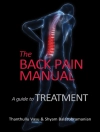‚[This book] has its origins in courses taught by the editors and their collaborators for doctoral students. It therefore addresses the need to focus on how theories can be applied in the real world of clinical practice and the research based on it. Introductory and concluding sections make the case for the importance of theoretical frameworks when developing practice and research settings. Eighteen chapters cover individual theoretical approaches. While some, such as the theory of human caring and transformational leadership theory, will be familiar to many readers in the UK, others cover new territory… SCORE: 4/5 stars.‘ — John Adams , honorary research associate, Faculty of Nursing and Midwifery , Royal College of Surgeons in Ireland, Nursing Standard
This is the first book to clearly and fully demonstrate the process of using theory to guide nursing research and professional practice. It describes a step-by-step format for evaluating nursing theoryís applicability to research, a format that links theory (both middle-range and grand theory) to research on a wide range of clinical populations and care delivery systems. The book describes how theory analysis models are used to examine various nursing phenomena as they relate to nursing research and professional practice, and provides key examples of how this is accomplished.
The book takes the reader through the process of using a theory to guide research from inception of a research question to evaluation of future research. International experts in theory-related nursing research describe twelve theories that have previously been applied to research and practice and six theories that can be applied to future research and practice. Using a consistent analytic framework, each chapter applies a specific theory (from either nursing, psychology, sociology, or management) to a particular clinical population or care delivery issue. These encompass clinical, administrative, and educational nursing settings. The consistent format facilitates ease of comparison across different theories. Generous use of figures and tables further demonstrates the complex relationships between and among concepts embedded in the theories.
Key Features:
- Demonstrates a systematic format for evaluating middle-range and grand nursing theoryís applicability to research
- Links theory to clinical practice at patient population and care delivery levels
- Provides a useful template for students of nursing disciplinary knowledge development
- Presents the scholarship of international researchers of theory-related nursing
- Includes theories from nursing, psychology, sociology, and management
Inhaltsverzeichnis
‚
Foreword
Pamela G. Reed
Preface
Joyce J. Fitzpatrick and Geraldine Mc Carthy
Part 1: Introduction
1. The Discipline of Nursing
Joyce J. Fitzpatrick
2. Extant Nursing Models and Theories: Grand and Middle Range Theories in Nursing
Mary Quinn Griffin and Margaret Landers
Part 2: Theories Applied to Research
3. Symptom Management Theory
Margaret Landers
4. Transitions Theory
Alice Coffey
5. Theory of Planned Behavior
Nicola Cornally
6. Social Support Theory
Patricia Leahy-Warren
7. Health Action Process Approach Theory
Elaine Lehane
8. The Judgment to Delay Model
Mairin OíMahony
9. Progressively Lowered Stress Threshold Model
Mark Tyrrell
10. Cultural Competence Model
Karen Bauce
11. Interpersonal Relations Theory
Jeffrey Jones
12. Theory of Work Engagement
Margaret OíConnor Murphy
13. Sexuality in Women: Theoretical Perspectives
Vickie Cleary, Aileen Burton, and Josephine Hegarty
14. Acculturation Theory
Emerson Ea
Part 3: Theories Applied to Future Research and Practice
15. Story Theory
Patricia Prufeta
16. Self-Transcendence Theory
Jean Marie Di Napoli, Mary Joy Garcia-Dia, Leila Garcia-Ona, Deirdre
OíFlaherty, and Jennifer Siller
17. Caring Theory
Catrina Heffernan
18. Transformational Leadership Theory
Robin Krinsky and Josiane Hickson
19. Empowerment Theory
Jean Marie Di Napoli, Deirdre OíFlaherty, and Mary Joy Garcia-Dia
20. Theory of Meaning
Elizabeth Weathers and Margaret Murphy
Part 4: Other Theory Dimensions
21. Theory Underlying Nursing Intervention Research
Bernadette Melnyk and Dianne Morrison-Beedy
22. Summary and Future Directions
Geraldine Mc Carthy and Joyce J. Fitzpatrick
‚Über den Autor
Geraldine Mc Carthy, Ph D, MSN, MEd, RNT, RGN, Fellow RCSI, is emeritus professor at the Catherine Mc Auley School of Nursing and Midwifery, University County Cork (UCC), Cork, Ireland, and chair of the South/South West Hospital Group, which comprises nine hospitals in the South of Ireland.












